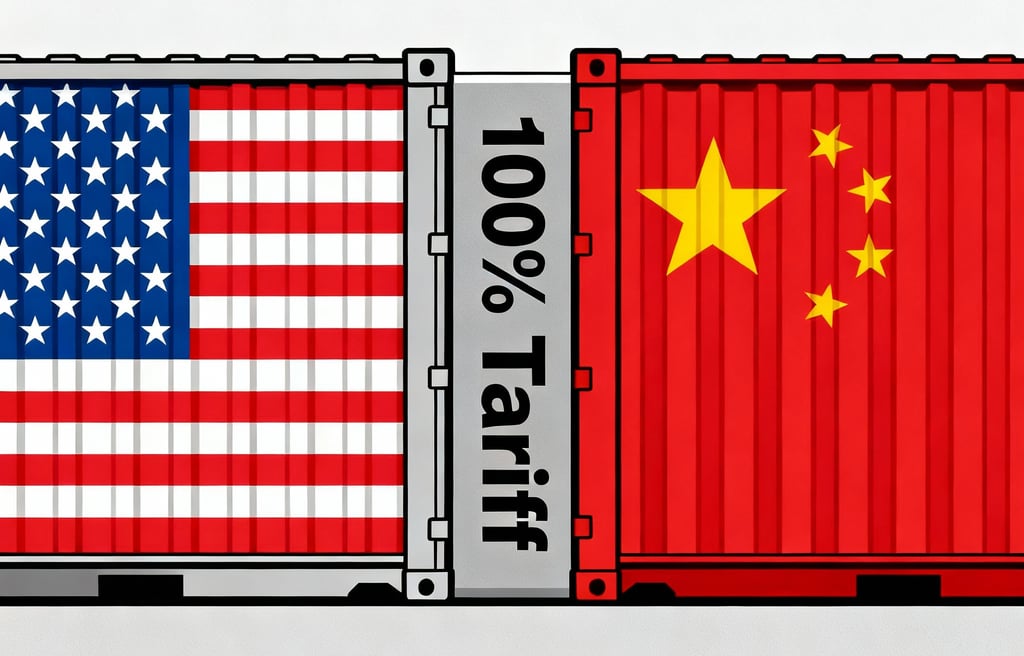Trump Imposes 100% Tariff on Chinese Imports Amid Rare Earth Export Dispute
US President Donald Trump declared that, as of November 1, 2025, the US will slap a new 100% tax on Chinese goods. China's export restrictions on rare earth minerals, which are crucial for high-tech sectors, prompted this action. Tensions between the two nations have escalated as a result of the statement, and both sides have threatened to take additional trade measures if the situation does not improve.
MARKET NEWS
10/13/20252 min read


On October 10, 2025, US President Donald Trump declared that, as of November 1, 2025, the US would slap an additional 100% tariff on Chinese imports. China's new export restrictions on rare earth minerals, which are essential for defense and high-tech industries, have prompted this tariff. The current 30% tariffs will be increased by the new ones, making the overall duty on Chinese imports an astounding 130%.
After China tightened export controls on rare earth elements and related refining technology used worldwide in electronics, electric cars, and weapons, the decision was made. The US administration views Beijing's export control policies as severe since they involve licensing foreign manufacturers who utilize Chinese products.
On the same day, Trump denounced China for sending what he called "extremely hostile" letters detailing their extensive export curbs to other nations and announced concurrent US export controls on essential software. China responded by warning of retaliatory actions and denounced Trump's tariff proposal as an instance of US double standards.
Significant market declines occurred in Asia and around the world as a result of the tariff announcement, which rekindled concerns of a trade war. The situation has escalated economic tensions between the two powers, and both sides are ready for additional escalation if required, despite Trump's statement that he would lower tariffs if China reverses its export limits.
These recent steps on rare earth minerals, a crucial resource for cutting-edge technologies worldwide, jeopardize the tenuous truce that has existed between the two nations for months.
Its Impact on India & Other Asian Countries
Trump's 100% tariff on China will have a variety of effects on India and other Asian nations. Fears of fresh US-China trade conflicts have caused Asian stock markets to decline, resulting in volatility and a poorer outlook for regional economic growth. As supply chains for the electronics, technology, and automotive industries are disrupted by rising costs and trade barriers, major markets in Taiwan, South Korea, Hong Kong, and China itself have suffered decreases.
The tariff war presents opportunities as well as difficulties for India. The drawback is that India's supply chains, particularly those in electronics and pharmaceuticals, which rely significantly on Chinese inputs, may experience delays and cost hikes, which might hinder GDP growth and raise inflation. However, since US tariffs reduce the competitiveness of Chinese goods in the US market, Indian exporters may profit. This makes it possible for Indian goods—particularly toys, leather goods, and textiles—to increase their proportion of US imports. As demand moves away from China, Indian exports to the US, which came to $86 billion in 2024–2025, are predicted to rise.
Overall, nations like India are likely to benefit export-wise from the change in trade dynamics brought about by the higher tariffs, even though Asia may see a slowdown in economic development and greater uncertainty as a result of the tariff escalation.
